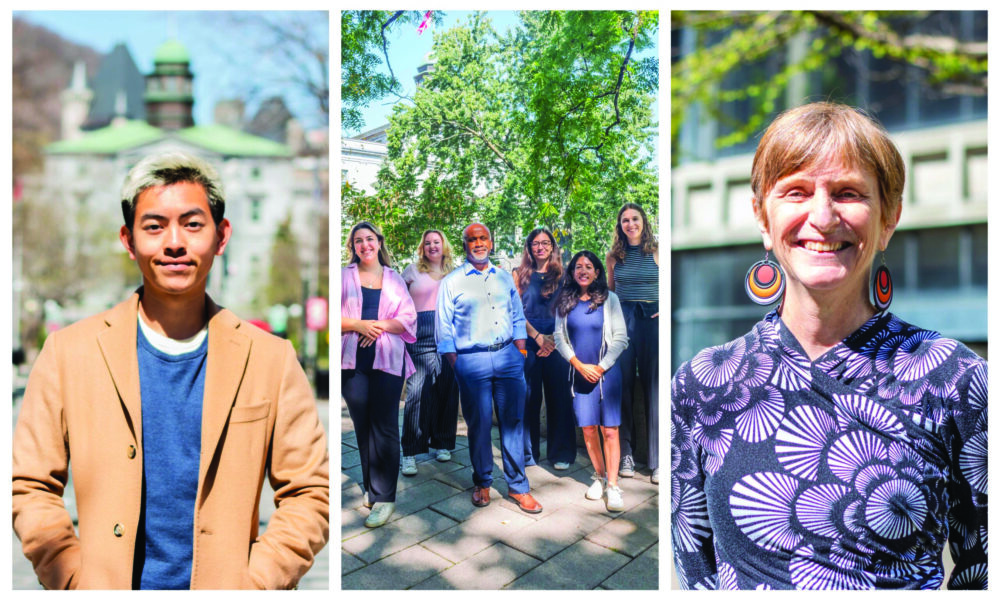In September 2022, McGill’s Office of Sustainability granted three Catalyst Awards recognizing students, staff, and projects that have made exceptional strides in pushing sustainability forward at McGill.
“Since its first edition in 2011, the purpose of the awards has always been to acknowledge and celebrate those who led the way towards integrating sustainability into McGill’s operations, curriculum, and overall culture,” wrote Francois Miller, executive director of the Office of Sustainability, in an email to The McGill Tribune.
Professor Catherine Potvin of McGill’s Department of Biology received the Faculty & Staff Award for her work with the Bayano-McGill Reforestation Project. The project has planted over 44,000 trees in Panama in cooperation with local organizations and Indigenous authorities with whom Potvin had established ties through previous research. Potvin’s reforestation work is critical because trees remove carbon from the air through photosynthesis, storing it in their biomass and in the soil. This process helps to offset McGill’s carbon emissions and contributes to the university’s goal of reaching carbon neutrality by 2040.
The Office of Sustainability granted the Group Initiative Award to impact200, a competition held last year which gave teams of McGill students a platform to develop innovative start-ups that address one of the United Nations’ 17 Sustainable Development Goals. The finalists included Miniwaste, which developed a food mapping software to connect food donors and people in need with local food banks, and CoolHealth, which is working to build solar-powered vaccine coolers for use in communities where access to refrigeration is limited.
The Emerald Key Award recognizes individual students who contribute to McGill’s culture of sustainability and was awarded to Quang Nguyen, U3 Engineering, this year. Nguyen, who is currently on exchange at École Polytechnique de Lausanne, was last year’s co-president of the Research & Sustainability Network (RSN), an organization that connects McGill staff and students with the aim of furthering sustainability projects.
“I got involved with RSN because I was interested in how it takes an interdisciplinary approach to the problem, with members coming from engineering, science, but also arts and business backgrounds,” Nguyen wrote in a direct message to the Tribune. “This is the kind of diversity in perspective and skill set that we need to solve such complex and systemic issues that are often found in the sustainability space.”
Nguyen also participated in the 2041 ClimateForce Antarctic Expedition, which sponsored young activists to journey to the Antarctic in March 2022, with the goal of inspiring them to preserve the Antarctic environment.
“My biggest takeaway from the Antarctic trip is that climate change is created by humans so we should be able to solve it, too—but only if we overlook our differences and come together as a society,” Nguyen wrote. “The climate will not wait for us to overcome our political and economic delays. We need to act quickly and we need to do so collectively.”
In an effort to actively engage students, the McGill Office of Sustainability also recently selected 60 students to participate in the 2022-23 Sustainability Ambassadors Program.
“This program offers a platform for students to apply their skills and creativity in order to grow the sustainability movement at McGill,” Miller wrote.
There are many ways for students to get involved in environmental activism on campus, from the McGill Office of Sustainability to research, student-run clubs, and organizations such as the Research and Sustainability Network, the McGill Energy Association, and the Desautels Sustainability Network, to name a few.
“There’s so many opportunities that exist now,” Nguyen noted. “Whether you want to organize events and host environmental discussions, work on a more hands-on project in green research, grow a community garden—there’s really something for everyone!”









